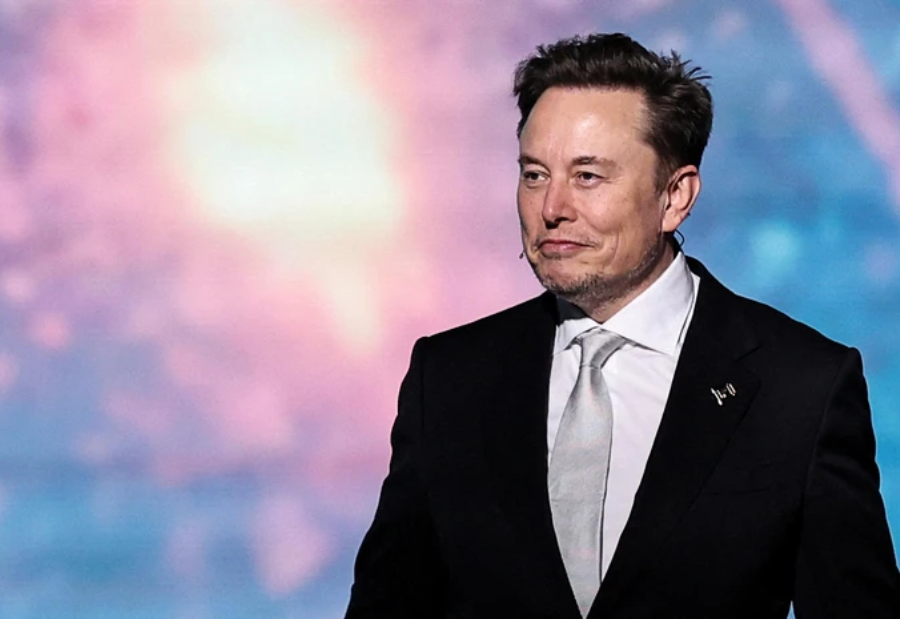Elon Musk, the CEO of Tesla, announced that the American automaker had agreed to pay $16.5 billion to source chips from Samsung Electronics. This agreement is anticipated to support the South Korean tech giant’s struggling contract manufacturing division.
Following the announcement, Samsung’s stock increased by almost 4%.
“Samsung’s giant new Texas fab will be dedicated to making Tesla’s next-generation AI6 chip. The strategic importance of this is hard to overstate,” Musk said in a post on X on Monday.
If Musk was speaking to Samsung’s planned facility in Taylor, Texas, the agreement may get the project back on track after it has been delayed due to Samsung’s difficulties attracting and keeping big clients.
“Samsung agreed to allow Tesla to assist in maximizing manufacturing efficiency. This is a critical point, as I will walk the line personally to accelerate the pace of progress. And the fab is conveniently located not far from my house,” Musk said on his social media platform.
Samsung had previously disclosed the $16.5 billion chip supply agreement without identifying the customer, claiming that the client had asked for confidentiality on the terms of the agreement, which is set to expire in 2033.
Media was informed by three people with knowledge of the situation that Tesla was the buyer of the deal.
The agreement comes as Samsung is under increasing pressure to catch up to competitors like TSMC and SK Hynix in the battle to manufacture artificial intelligence chips. Its earnings and stock price have suffered greatly as a result of this delay.
Through its foundry division, Samsung, the leading memory chip manufacturer in the world, also produces logic chips that are custom-designed by clients.
According to Kiwoom Securities analyst Pak Yuak, the most recent agreement will assist in lowering losses at Samsung’s foundry division, which he said totaled more than 5 trillion won ($3.63 billion) for the first half of the year.
For cutting-edge semiconductors, analysts claim Samsung has had trouble keeping important customers from switching to TSMC. Among TSMC’s clients are Apple, Nvidia, and Qualcomm.
The Samsung-Tesla agreement may also be important for South Korea, which is looking for U.S. shipbuilding and chip alliances as it makes desperate attempts to strike a trade agreement that would remove or drastically cut possible 25% U.S. tariffs.
According to Lee Min-hee, an analyst at BNK Investment & Securities, Samsung is struggling to increase manufacturing yields of its most recent 2-nanometer technology, but the order is unlikely to contain the state-of-the-art technology.
In contract manufacturing, Samsung has been losing market share to TSMC, highlighting the technological obstacles the company must overcome to become proficient in sophisticated chip fabrication and draw in customers like Apple and Nvidia, experts said.
Also read: Viksit Workforce for a Viksit Bharat
Do Follow: The Mainstream formerly known as CIO News LinkedIn Account | The Mainstream formerly known as CIO News Facebook | The Mainstream formerly known as CIO News Youtube | The Mainstream formerly known as CIO News Twitter |The Mainstream formerly known as CIO News Whatsapp Channel | The Mainstream formerly known as CIO News Instagram
About us:
The Mainstream formerly known as CIO News is a premier platform dedicated to delivering latest news, updates, and insights from the tech industry. With its strong foundation of intellectual property and thought leadership, the platform is well-positioned to stay ahead of the curve and lead conversations about how technology shapes our world. From its early days as CIO News to its rebranding as The Mainstream on November 28, 2024, it has been expanding its global reach, targeting key markets in the Middle East & Africa, ASEAN, the USA, and the UK. The Mainstream is a vision to put technology at the center of every conversation, inspiring professionals and organizations to embrace the future of tech.




